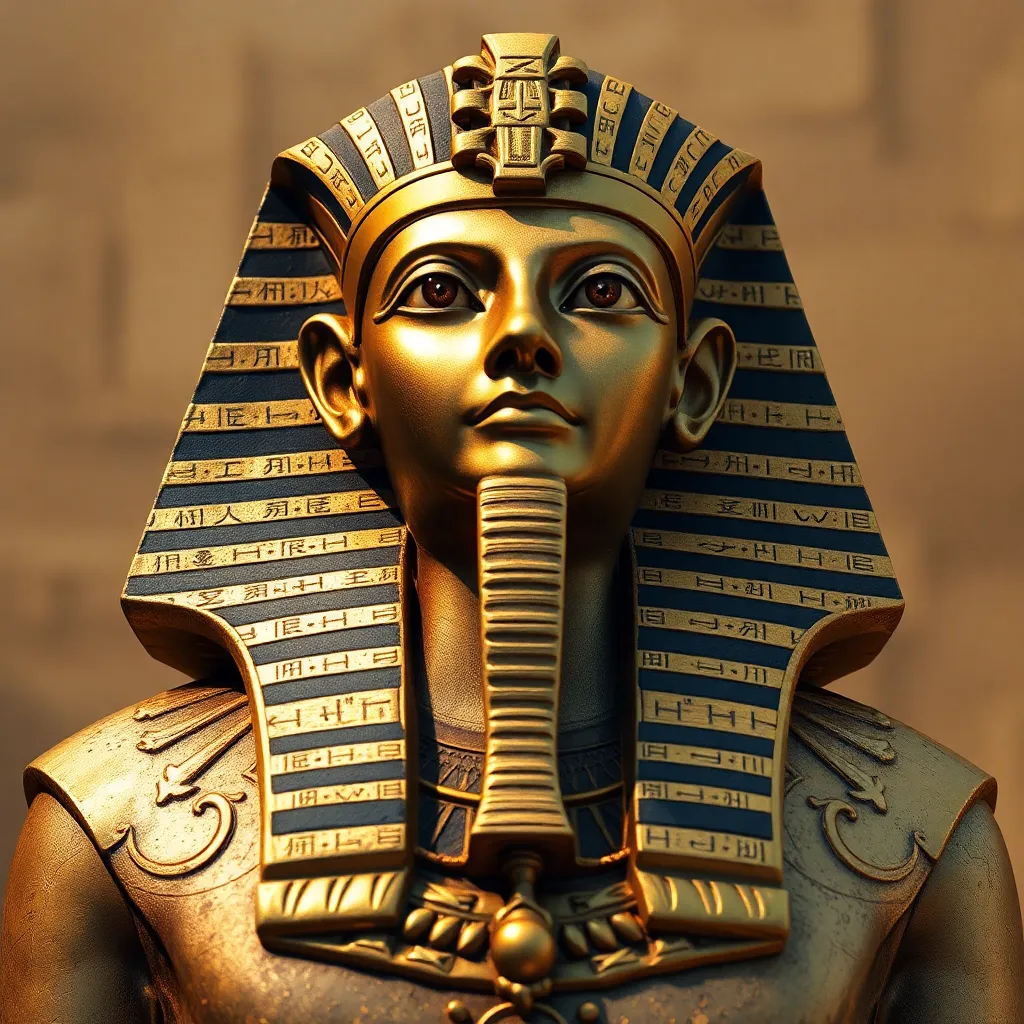The Pharaoh’s Legacy: The Divine Right to Rule and its Influence on Modern Politics and Leadership
I. Introduction
The concept of the Divine Right to Rule is a political and religious doctrine that asserts that a monarch derives their right to rule directly from the will of God. This notion has roots in various ancient civilizations, significantly shaping governance structures throughout history.
In ancient Egypt, Pharaohs were not merely political leaders; they were considered divine entities, intermediaries between the gods and the people. They were believed to embody the will and authority of the divine, which justified their absolute power and control over the land.
Exploring the legacy of the Pharaohs and their divine right to rule is crucial for understanding how these historical precedents continue to influence modern politics and leadership practices around the world.
II. Historical Context of the Divine Right to Rule
The Divine Right to Rule has its origins in various ancient civilizations, where leaders were often seen as representatives of the divine on earth. In Egypt, this was epitomized by the Pharaohs, who were believed to be gods themselves, ruling in accordance with divine will.
In Egyptian society, the Pharaoh was central to both governance and religion, establishing a theocratic system where religious authority reinforced political power. Similar concepts of divine authority can be found in other cultures, including:
- The Mesopotamian kings, who were viewed as divine representatives.
- The Roman Emperors, who were often deified posthumously.
- The concept of the Mandate of Heaven in ancient China, legitimizing rulers based on their moral conduct.
III. The Pharaohs’ Governance and Political Structure
Pharaohs ruled Egypt through a theocratic leadership model, where religious and political authority were intertwined. This governance system had profound implications for society:
- Religious institutions held significant power, often controlling vast resources and influencing political decisions.
- The Pharaoh was seen as a protector of maat, the ancient Egyptian concept of truth, balance, and order, reinforcing their legitimacy.
- Rituals and ceremonies were central to governance, underscoring the divine connection of the Pharaoh to the gods.
As mediators between the gods and the people, Pharaohs were responsible for ensuring the favor of the deities, which was believed to be essential for the prosperity of the nation.
IV. Transition of the Divine Right to Rule Through History
The Divine Right to Rule evolved significantly over the centuries, particularly during the medieval period in Europe. Monarchs began to link their authority to divine will more explicitly, often using religious justification to maintain control.
A comparison with feudal systems reveals that while power was decentralized among nobles, the notion of divine right remained a common thread, legitimizing monarchs’ authority over their vassals.
The Enlightenment period challenged these ideas, promoting concepts of reason, individual rights, and governance based on the consent of the governed, which gradually led to the decline of absolute monarchies.
V. Modern Political Leadership and the Echoes of Divine Right
In contemporary politics, some leaders invoke a sense of divine authority or charisma reminiscent of ancient rulers. This phenomenon can be analyzed through various lenses:
- Charismatic leadership often draws on emotional appeal, suggesting a deeper connection to the populace.
- Populism can create a narrative where leaders position themselves as saviors of the people, echoing the divine role of ancient Pharaohs.
- Case studies of modern leaders, such as certain authoritarian figures, reveal attempts to embody or invoke divine qualities to legitimize their rule.
VI. The Impact of the Divine Right on Governance and Authority Today
Today, the legacy of the Divine Right to Rule can be observed in various governance structures, especially in authoritarian regimes where leaders maintain power through a blend of political control and religious endorsement.
Key aspects include:
- The relationship between religion and state often defines the authority of modern leaders, with some using religious rhetoric to justify their actions.
- Public perception plays a crucial role; many citizens may accept a leader’s authority if it aligns with cultural or religious beliefs.
VII. Critiques and Counterarguments
While the Divine Right to Rule has shaped political landscapes, it faces significant critiques, particularly in the context of democracy:
- Arguments against the divine right emphasize its potential to undermine democratic principles and individual rights.
- The rise of secularism challenges traditional authority structures, advocating for governance based on reason and consent rather than divine sanction.
- Successful democratic movements, such as those in the 20th century, illustrate the shift away from authoritarian rule and the embrace of democratic ideals.
VIII. Conclusion
The legacy of the Pharaohs and the Divine Right to Rule remains relevant in understanding modern political leadership and authority. As societies continue to grapple with the balance between power, legitimacy, and the will of the people, reflections on this historical context provide valuable insights.
As we move forward, the challenge lies in reconciling the enduring influences of ancient authority with contemporary demands for democracy and accountability. Ultimately, the evolution of political leadership will depend on how societies choose to engage with their past while striving for a future that honors the rights and voices of all citizens.




